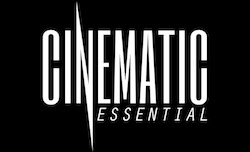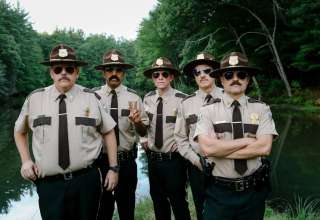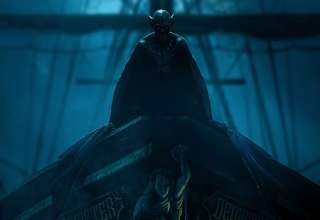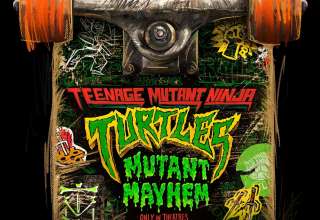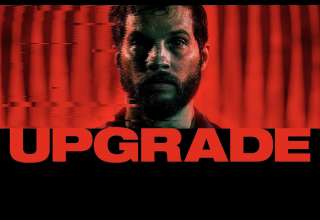You never know what property will break out and become something that many people will see as a valuable piece of art. For author RJ Palacio, that’s something that happened to her work as Wonder became a sensation that’s now being shared around the world by people of various age groups. When she and director/writer Stephen Chbosky came to Boston, I was able to talk to them about that and plenty of other things having to do with both the book and its upcoming cinematic adaptation starring the likes of Julia Roberts, Owen Wilson, and Jacob Tremblay.
Cinematic Essential: Did Chbosky being an author himself make it easier to trust the process?
RJ Palacio: It really did. We met for a wonderful three-hour dinner before we started with the movie and it was really evident to me that as an author, his intention was to be as faithful to the book as possible and where he wasn’t able to be completely faithful to the book, he would be faithful to the spirit of the book.
How did you come up with the idea for the story?
Palacio: There’s a scene where Jack Will (Noah Jupe) talks about the first time he sees Auggie (Jacob Tremblay). That scene was based on a real encounter that I had when I was with my two sons and we found ourselves in very close proximity to a little girl who had a very severe cranial facial difference and my son reacted. Basically, that inspired me to think about what it might be like to face a world everyday that doesn’t really know how to face you back. To face a world that stares at you and points at you when you feel that you’re absolutely ordinary on the inside but no one else sees it that way.
What inspired you to make the movie?
Stephen Chbosky: What inspired me was I loved the book. It was given to me right around the time my son Theodore was born. There was something about the timing of reading this beautiful story about a boy and his parents and older sister. Here I had an older sister and a new son and the symmetry really spoke to me. And seeing all the struggles that the Pullman family went through, I felt like I related to what my own memory of being a child for Auggie but then his parents. Not only that, but I also recognized the quality of the book. I think this is one of the most important books written in the last several decades. I think it’s so artful. Especially for this age range.
Did you try to write for a specific age range with Wonder?
Palacio: A good story is a good story. I think one of the worst things a writer can do is write down to a certain age group. And certainly I tried not ever to do that with Wonder. Maybe the only thing I did when keeping my target audience in mind was keeping shorter sentences than I might usually express myself as a writer. I kind of get how kids read: keep the sentences a little short. Keep the chapters short. Otherwise, it’s about keep children or adults turning the page. That’s all I try to do.
What about making the film?
Chbosky: It was easier for me, because I love the book so much, to just focus on the characters. My approach was regardless of how you get into to the story, there would be some way in but I was hoping that everybody would find the same exit so you could share in this story about kindness and about empathy or you could just enjoy a good laugh or a good cry. I think we all go into the movie expecting to see Auggie’s first day of school. And I was really proud that had enough bandwidth to tell mom’s first day of school story. Just in that one little shot. That’s all you need. She’s alone in a house. And I’m really excited as a parent to know that there are going to be millions of children who will see that and think “Huh, what does my mom do when I’m at school?” That’s really exciting.
How much was RJ a part of the process of turning this into a film?
Chbosky: RJ was more than an author to me. She was my secret weapon in everything. Being a fellow author, I know what I brought to Perks of Being a Wallflower as a filmmaker, but as an author, I knew how valuable knowing all that was. When I was making Perks, no actor ever said to me “My character would never say that.” It doesn’t exist because I created the whole world and now I’m adapting it. So, with RJ it was an invaluable resource. And I also think she’s a brilliant writer. So, if I was stuck on a scene or stuck on the screenplay, I would always ask her if she had a version of the scene. And I might only take one line from it, but that one line was all the difference. It was a perfect marriage. And there was so much more. We talked about casting, we talked about cuts, we talked about everything.
Palacio: And there were moments where Steven or the producers would ask my opinion and ultimately decide to go a different way. And that was fine because I always felt like I didn’t have to be the final voice in the room. I just wanted to be one of the voices just so they could hear my voice on some things. It shouldn’t have any more importance or weight than anyone else’s voice. They were really good about respecting that and it was really a lot of fun for me just because I would get calls from Stephen in California asking me what color sofa the Pullmans might have or what kind of laptop sleeve Isabel (Auggie’s mother played by Julia Roberts) might have and what would her dissertation be about. And it was great for me because these are my characters and I would start to think about that. So, it was actually a way of extending the Wonder writing process.
What was your favorite scene from the film?
Chbosky: My favorite scene to see in the film is the flashback to Via’s fourth birthday, because that is my daughter. Because I was in Vancouver filming, I actually missed her actual fourth birthday. It just so happens she looks a lot like Izabela Vidovic who plays Via. And it just so happens that there is a flashback where she talks about her wishing for a brother. I needed something to get to the end of the beautiful monologue in Our Town to get to the play. So, that was my favorite scene, but as far as the book, I couldn’t even pick. It’s amazing.
How did you guys come up with Auggie’s look for the film?
Chbosky: We got very fortunate, our make up designer Arjen Tuiten is a very brilliant guy. He’s trained by Rick Baker – a brilliant guy. I think maybe a part of being a director is being a pragmatist. Whatever I can imagine as a reader, there’s only so much a 9-year-old actor can go through. There’s only so much you can do to his face, and my guiding principle was I want the makeup to be real. I want the performance to be his. You can animate the face if you wanted to but I knew it wouldn’t be as powerful. So, we took the makeup as extreme of a place as we could practically. Then we used CGI to clean up certain little things.
Is his appearance in the film similar to how you imagined when you were writing the book?
Palacio: It might be different from what you imagined. And that happens anytime you turn a book into a movie. In Wonder, it’s especially important because it’s all about the face in the book. But on the other hand, one of the reasons why I didn’t go into too much detail was because it didn’t really matter what he looks like. It’s just that he looks different and the movie gets that. And any difference, especially at that age, is enough to make him an easy target of the meaner kids in the class.
What does the movie add to the story that wasn’t in the book?
Palacio: The movie tells a couple of stories that aren’t told in Wonder. We see more of the parents in the movie. In the book, we only see them from the kids’ point of view, so we only know what their lives are through the filter of their kids. They’re central to the story but they’re somewhat in the background. And here, we see them without the kids and get to know them a little bit better. And Stephen wrote scenes that filled in those narratives on their own, so they’re a little bit more complex. And the second thing, I often described the book as being a meditation on kindness, so I would say they really echoed that from the book and maybe enhanced it in their own way.
This also shows the struggles of the family dealing with Auggie’s ailment.
Palacio: Some of the sweetest emails I’ve gotten have come from the parents of children who have any kind of difference. They say that after reading the book, they were reminded about their other children and the impact of having a kid with any kind of special needs affects all of the kids. They have to remember that and sometimes they just don’t have time.
Chbosky: Yeah, how do you do a story about kindness and empathy without thinking about what the mom is going through or what someone like Via (Auggie’s sister) is going through. It lead to some really great things artistically and I love doing that. And it reminds me of when you (Palacio) were talking about the emails that you would get. We had a lot of kids who have this condition visit us on set. It’s very interesting. Something I learned about kids is that if you have a kid with a cranial facial difference, everybody around them wants to talk about that condition. Everybody wants to talk about that condition more than the kid. The kid wants to talk about baseball and Star Wars and everything else. That was a fascinating thing to watch, and I tried to do it to reminds us all the time that we are not our conditions. We are ourselves.
How do feel about your book being used in classrooms?
Palacio: You can’t foresee any of this. Certainly when you’re writing a book, you just hope it gets published. And if it does get published, you’re just hoping that one or two people will read it and that’s as far as I would go. So, everything that’s happened afterward whether it’s the movie or that it’s been adopted in so many classes across the country and in Germany and in the U.K., and Ireland I just found out has a whole curriculum in year six. The whole country is using Wonder as a mandatory read. That really thrilled me because I’m a huge fan of Irish writers. And if they like my book, I’m like “Wow!” No one writes like the Irish.
Chbosky: In the sixth grade they give the kids a copy of Wonder and a Guinness. (laughs)
Palacio: Just the idea that it’s kind of a “right of passage” maybe kind of like To Kill a Mockingbird is that to seventh graders is kind of cool knowing that long after I’m gone from this Earth that this might still be the case.
Chbosky: She gave you the very polite, self-deprecating author answer. I’ll give you the fan answer: Yes, the book is that good. Yes, it’s being taught in schools, and once I came on board to do the movie I told everybody that I believe for the middle grade, there are three books in American literature: To Kill a Mockingbird, The Outsiders and now there’s Wonder. I think Wonder is on that list and I would put it above The Outsiders, but that’s just me.
Do you see yourself doing anymore films about kids?
Chbosky: I do. Absolutely. I just finished my second novel. It’s not 100% but there’s definitely a kid element to that one. I love it. I love their enthusiasm.
Palacio: But it’s also because you speak “kid.”
Chbosky: I’m very immature.
Palacio: You should have seen him on set. They just loved him. He speaks “kid.” They loved him.
Chbosky: It was all quite an experience. The thing is my philosophy with casting is that I don’t cast actors, I cast human beings, and these kids were so nice and so grateful and enthusiastic about being there that it just made it all better.
